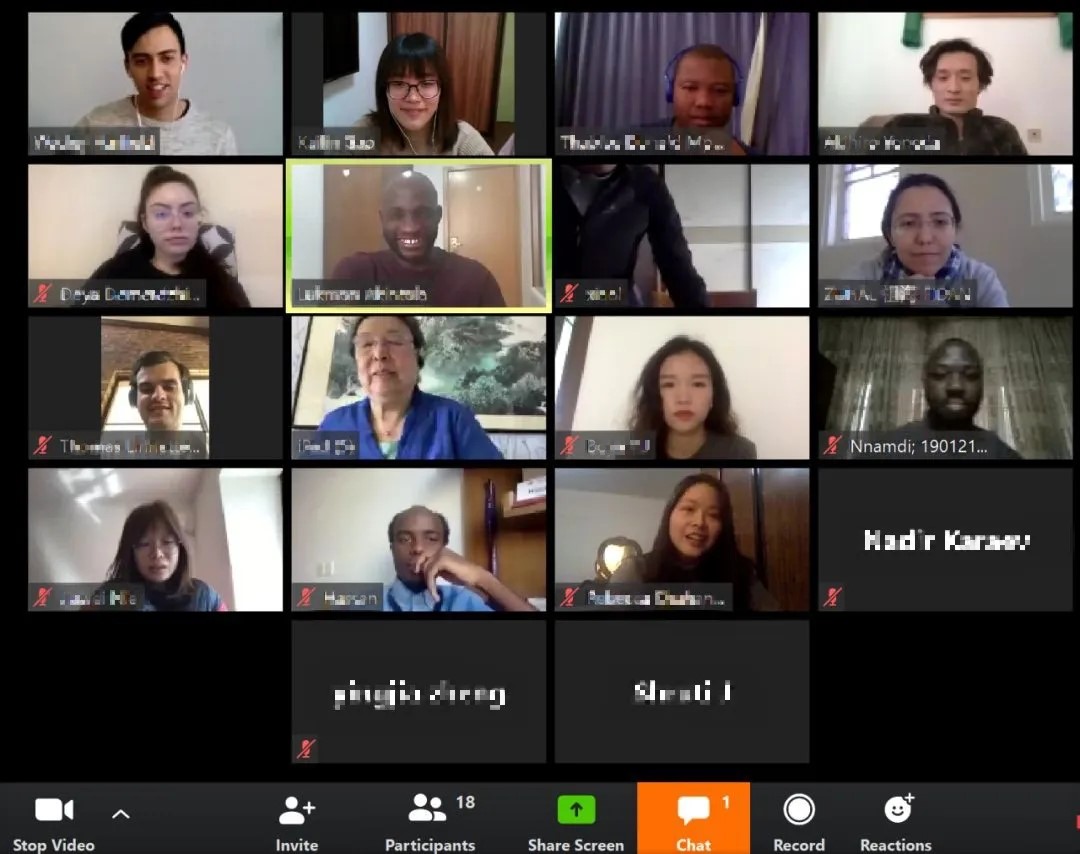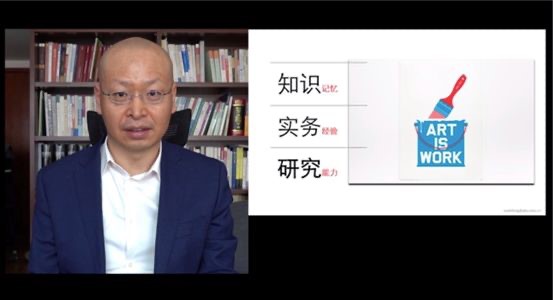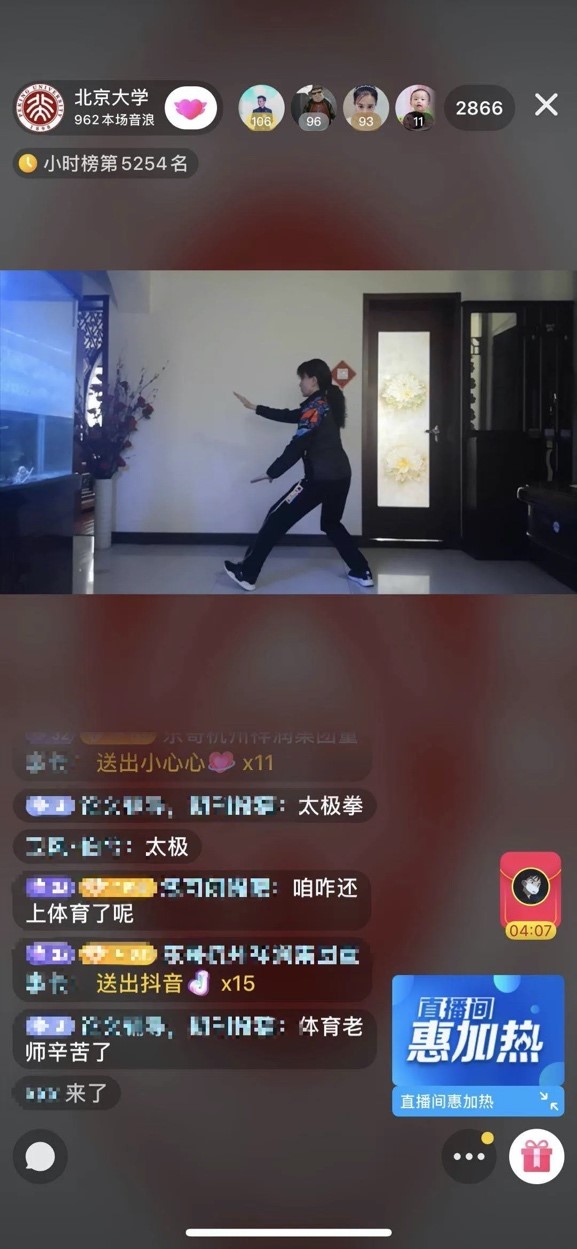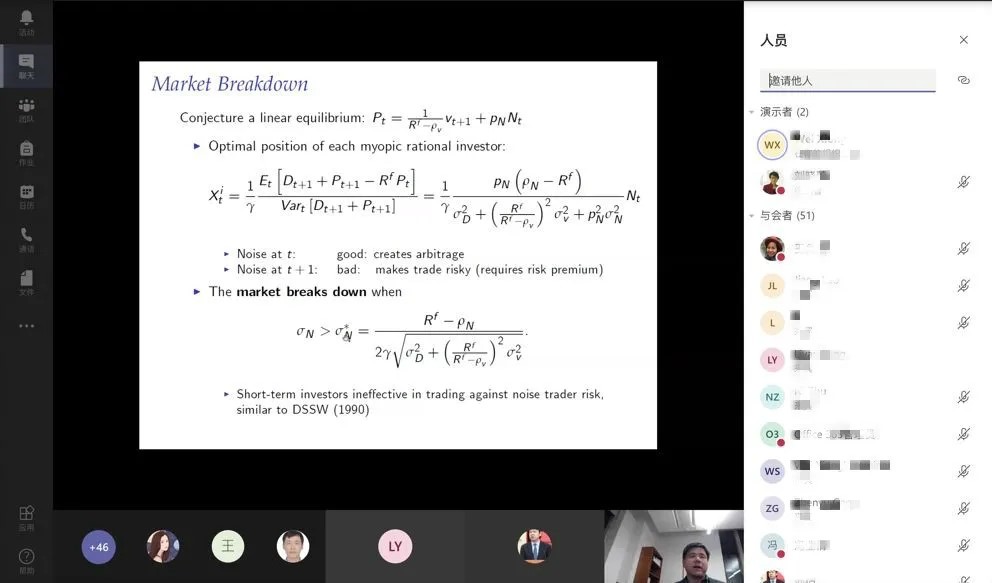Learning worldwide! A glimpse of Peking University online teaching strategies
Mar 12, 2020
Peking University, March 12, 2020: It’s the fourth week of online education and PKUers from around the world have started taking online classes. But how do international students study online and deal with the time difference?
The Yenching Academy of Peking University has students from nearly 40 countries around the globe, most of which have delayed their return to school due to the coronavirus. Starting from February 17, the students began to learn on the “cloud classroom”.
At 3 p.m. Beijing time on February 18, the online teaching of “Contemporary Chinese Public Policy” began as scheduled. Federico Verly, a student far away in Buenos Aires, Argentina, has been making preparations in advance.
As a teaching assistant of this course, Verly turned on his laptop 15 minutes beforehand, logged in to the Zoom video conference platform, uploaded course materials on Canvas, and began to greet the students attending the course online.
Due to the time difference, many students abroad have started to struggle with their studies. Savannah Billman, a freshman at home in Pennsylvania, USA, has this feeling. She said, "Now because of the time difference, most of my classes are held in the evening, and one of them starts at 1:00 in the morning." Billman is trying to adjust her schedule so that she can stay focused in the evening and actively participate in class discussions.
Teachers will also adjust their teaching methods according to the students’ current situations, like offering recorded live broadcast videos. Verly's course is just like this. He is very grateful to the teachers for recording the course video, so that he can prepare in advance, organize online discussion, and facilitate some students with difficulties to participate in the course at other times.
A new way of using Bilibili
"General Theory of Business Law" and "Bankruptcy Law" are taught by Xu Defeng of Peking University Law School. “Tencent Meeting” platform is used for live broadcast of the two courses above, and the ClassIn platform is used for backup. For recorded class videos, Xu selected the Bilibili, a Chinese video sharing website.
"Recorded lectures are more meticulous and thoughtful, in which teachers tend to express more clearly and students can study and think repeatedly after class despite the lack of interaction; Live streamed lectures are livelier, but they are more casual and can be restricted by the internet connection. The combination of the two forms can maximize the advantages of online teaching," Xu said.
A new attempt of combining recorded lectures with online discussion for “mega-classes”
There are at least 200 students who choose the course "Exploring Space " every year. Seeing as the network might not be able to handle so many students in a live broadcast, Xie Lun from the School of Earth and Space Sciences chose to record the course and upload it online.
Students are required to watch the video in advance, and at the same time, the teacher would also put forward questions to be discussed in the course WeChat group for online interaction during class time.
In last week's online interaction, the students all participated actively. Every time a student asked a question, many other students immediately answered and held timely discussions with each other. The students who take this course come from various schools and majors of Peking University. They have a wide range of knowledge, unique perspectives and wonderful questions.
Learning P.E. on “cloud”
This semester, the Department of P.E. has arranged a total of 258 compulsory courses, all of which rely on online teaching. Formerly relying on specific training venues, P.E. classes now have found a new way of recording various home-based exercises for students to learn.
Recently, the Department of P.E. and PKU TV have worked together to broadcast the first live Tai Chi class. According to statistics, a total of 439,000 people watched the course. Some parents also expressed their hope that they could study together, improve their physique, strengthen their immunity, and adjust their psychological state.
At the same time, Zhang Rui, a faculty member from the Department of P.E, designed a set of simple and easy-to-learn exercises for students to improve their cardiopulmonary function and enhance their immunity during their stay at home. She has also taken short videos and made them into a WeChat article for students to learn and exercise.
The use of smart classrooms
In the Geology Building, Zhao Yufeng from the School of Mathematical Sciences is teaching. What’s different, though, is that there are no students sitting in the classroom. Teachers teach their classes in this “smart classroom” and broadcast them live online for students to watch at the same time.
“Advanced Algebra” is a fundamental course in mathematics, so many different mathematical formulas are used, and mathematical logic derivation is emphasized. “Using presentation slides or other online meeting platforms such as Zoom and Tencent will not produce very good results,” Zhao said. “The smart classroom developed by the Computer Center can let those who need to use the blackboard continue to teach during this special period of time.”
WeChat group & email Group
“When I was preparing to teach online, I first considered using MOOC resources. But I discovered that this wasn’t suitable for this class, so I chose a more reliable way to carry out teaching,” said Li Xiaoming from the School of Electronics Engineering and Computer Science.
In this course, Li Xiaoming arranges a certain time with students to interact and communicate on WeChat and email. Sending out questionnaires in the WeChat group can create a lively atmosphere and the unique opinions of students are almost always more than 200 words. Through the email group, each student can see questions sent by the teacher and the discussion with other students.
"It's a way for teachers to focus on teaching rather than technology," Li said. "It looks a little bit 'conventional', but it's practical."
Alternating between different teaching methods
In the first week of this semester, the Department of Sociology conducted online teaching in various forms for 40 undergraduate courses and 31 postgraduate courses. ClassIn was the most popular choice for most teachers, and platforms like Tencent and Zoom also played an important role.
In the face of the challenges of online teaching, the Department of Sociology adjusted the allocation method of teaching assistants, providing one teaching assistant for each course, and two teaching assistants for courses with more than 100 students.
While teaching, teachers may find that the course is not suitable for the original teaching form, so it is critical to alternate and adjust flexibly between the different teaching methods, from WeChat group communication and Tencent Meeting to smart classroom live broadcasts and ClassIn. Between the transformation of teaching methods, teachers are also constantly exploring and accumulating online teaching experience.
From “learning on cloud” to “discussing on cloud”
On February 26, an online academic seminar of Guanghua School of Management brought nearly 60 scholars from Princeton University, the University of Toronto, and other countries together through the Internet.
The lecture adopted the form of online discussion. Participants can enter through the network system, listen to the lecture and participate in the discussion, just like the scene of an offline lecture.
Director of the Department of Finance in the Guanghua School of Management Liu Xiaolei said that academic lectures are different from class lectures. Participants and keynote speakers need to be able to fully communicate. Online lectures break the limitation of time and space, and can solve the problem of overseas guests being too busy to travel to Beijing. In addition, they can also invite other experts and scholars in the same field from around the world to participate in exchanges, which is the effect that traditional offline academic lectures cannot achieve.
Written by: Cherlin Xu
Edited by: Huang Weijian
Source: PKU News (Chinese)




